Integrative Proteomics and Phosphoproteome Analysis Services
Integrative proteomics and phosphoproteome analysis services analyze the overall protein expression profile and the phosphorylation modification profile through the combination of global proteomics and phosphoproteomics, helping researchers gain deeper insights into cellular regulatory networks.Compared with single proteomics analysis, this integrative strategy can establish connections between protein abundance changes and phosphorylation regulation, providing more comprehensive evidence for uncovering complex signaling pathways, disease mechanisms, and potential therapeutic targets.
As a professional proteomics CRO, MtoZ Biolabs relies on high-resolution LC-MS/MS platforms and optimized sample preparation and enrichment workflows to provide high-quality and systematic integrative proteomics and phosphoproteome analysis services for global researchers and pharmaceutical enterprises, supporting clients in achieving more breakthrough results in both basic and applied research.
Services at MtoZ Biolabs
The Integrative Proteomics and Phosphoproteome Analysis Services provided by MtoZ Biolabs are based on advanced mass spectrometry technologies, combined with optimized sample preparation and enrichment workflows, to deliver reliable and systematic solutions across multiple technical steps:
1. Modified Peptide Enrichment Technology
For low-abundance and highly dynamic phosphorylation modifications, we employ multiple strategies such as IMAC (immobilized metal affinity chromatography) and TiO₂ affinity enrichment. By optimizing conditions to reduce non-specific binding, we significantly improve the recovery rate and specificity of phosphopeptides, providing high-quality input for subsequent mass spectrometry detection.
2. High-Resolution Mass Spectrometry Detection
MtoZ Biolabs relies on high-resolution LC-MS/MS platforms such as Orbitrap and Q-TOF, combined with stable nanoLC systems, to achieve precise detection of complex protein samples. Our platform enables both global protein identification and detection of phosphorylation and other post-translational modifications, ensuring data depth and coverage.
3. Quantitative Technology
We provide multiple quantification strategies to meet diverse experimental needs, including:
- Label-free quantification: suitable for large-scale sample comparison with simple operation.
- Stable isotope labeling (SILAC): suitable for relative quantification at the cellular level.
- TMT/iTRAQ labeling quantification: supports simultaneous analysis of multiple groups with higher comparability.
These methods allow accurate relative or absolute quantification of both protein abundance and phosphorylation modification levels.
4. Bioinformatics Integrative Analysis
By combining multi-dimensional data, we provide comprehensive bioinformatics interpretation, including:
- Protein functional annotation and classification
- GO/KEGG pathway enrichment analysis
- Kinase–substrate prediction and signaling pathway network construction
- Correlation analysis of differential expression and phosphorylation modifications
Analysis Workflow
1. Sample preparation: protein extraction, digestion, and phosphopeptide enrichment
2. Liquid chromatography separation: efficient peptide separation
3. Mass spectrometry detection: high-resolution LC-MS/MS for protein and phosphorylation detection
4. Data processing: database searching and peptide/protein identification
5. Bioinformatics analysis: functional annotation, pathway enrichment, and network construction
6. Result delivery: comprehensive experimental reports and data files
Figure 1. Workflow for Integrative Proteomics and Phosphoproteome Analysis
Service Advantages
1. Extensive integrative analysis experience: We have long-term expertise in combined proteomics and phosphoproteomics research, accurately distinguishing between abundance-driven and modification-driven differences.
2. Strict quality control system: Quality control checkpoints are implemented throughout the workflow from sample preparation to data analysis, ensuring accuracy and stability of results.
3. One-Time Charge: Our pricing is transparent, with no hidden fees or additional costs.
Applications
✔️ Disease mechanism research: exploring the role of phosphorylation in cancer, neurological diseases, and autoimmune disorders
✔️ Drug target discovery: identifying drug targets and mechanisms of action to support drug development
✔️ Biomarker screening: discovering disease-related proteins and phosphorylation modifications as candidates for clinical diagnosis and prognosis
✔️ Signaling pathway analysis: systematically uncovering phosphorylation dynamics in key signaling pathways
FAQs
Q1: Can integrative analysis still be performed if the sample amount is limited?
A: Yes. MtoZ Biolabs has optimized the experimental workflow to obtain reliable results even with lower sample amounts.
Q2: Can it be combined with other omics?
A: Yes. We can provide multi-omics integrative analysis, including proteomics with transcriptomics, metabolomics, and others, depending on client needs.
Sample Submission Suggestions
| Sample Category | Detailed Requirements |
| Sample type | Multiple biological samples are accepted, including tissues, cells, plasma, serum, urine, and other body fluids. |
| Sample amount | Typically ≥100 μg total protein per sample for proteomics analysis; specific requirements may vary depending on project design. |
| Sample quality | Samples should be free of salts, detergents, nucleic acids, and other contaminants to ensure the accuracy of phosphoproteomics analysis. |
| Sample storage | Store samples at -80 ℃ to preserve protein and phosphorylation integrity; avoid repeated freeze-thaw cycles. |
| Shipping conditions | Ship samples on dry ice with proper labeling and safe packaging to prevent degradation during transport. |
Deliverables
1. Experimental report (including experimental conditions and quality control information)
2. Protein and phosphorylation site identification list
3. Quantitative results of abundance changes and differential modifications
4. Bioinformatics analysis results (pathways, functional annotation, network analysis)
5. Data visualization charts (heatmaps, scatter plots, enrichment plots, etc.)
6. Raw mass spectrometry data files
Integrative analysis of proteomics and phosphoproteomics provides new perspectives for studying complex signaling pathways and disease mechanisms. With advanced mass spectrometry platforms, optimized enrichment methods, and comprehensive bioinformatics support, MtoZ Biolabs delivers high-quality Integrative Proteomics and Phosphoproteome Analysis Services. Contact us to learn more about customized solutions that will accelerate your research and development projects.








